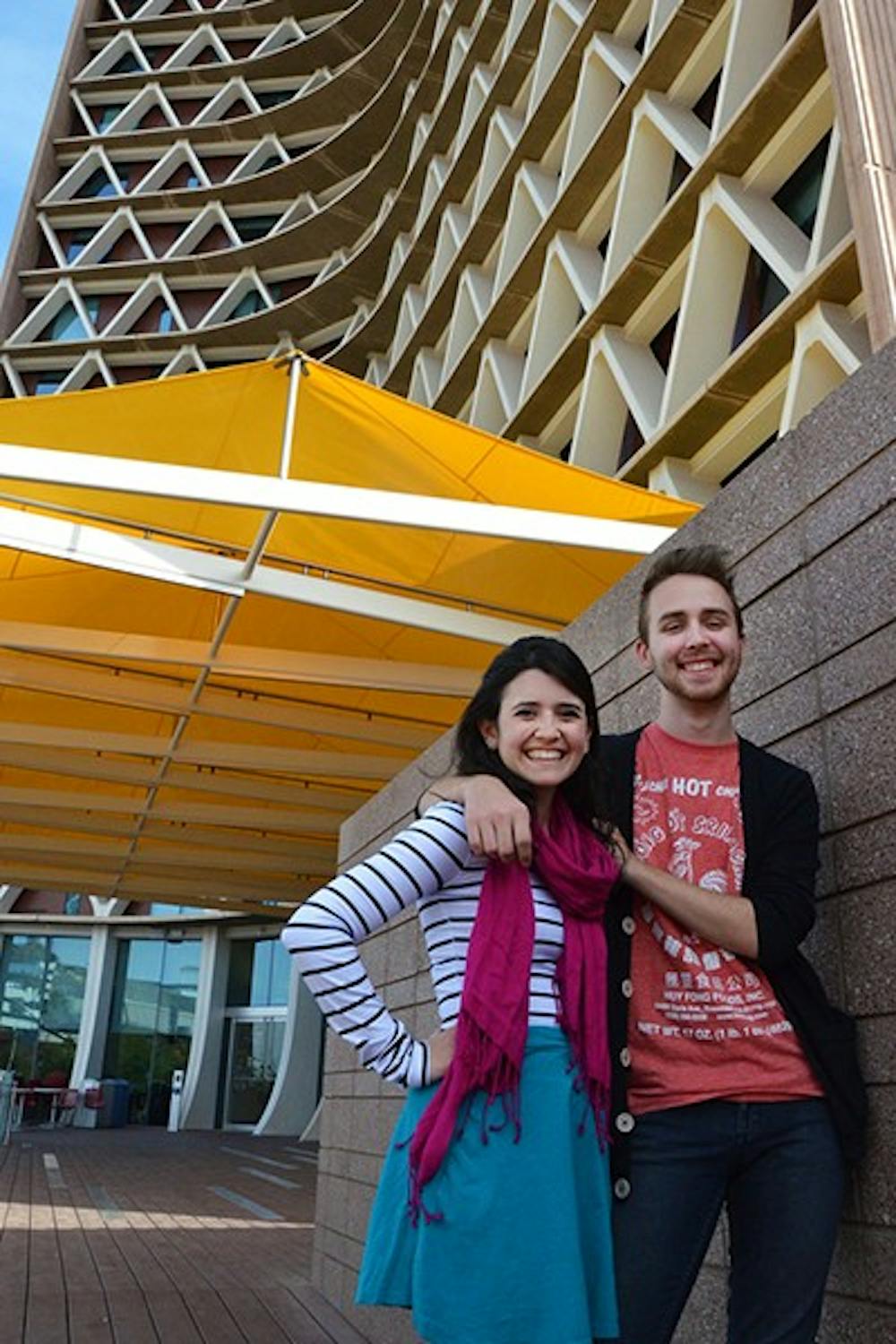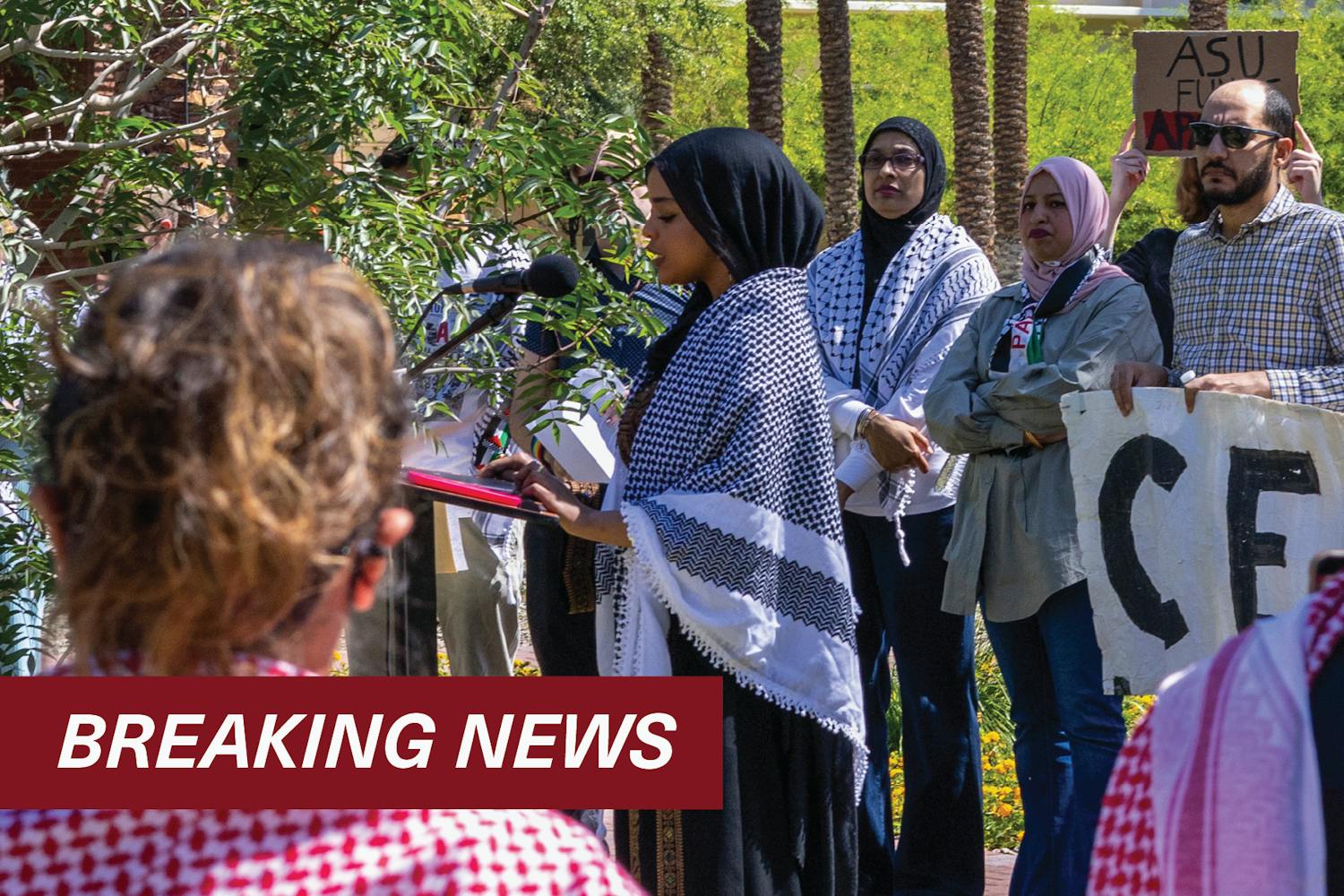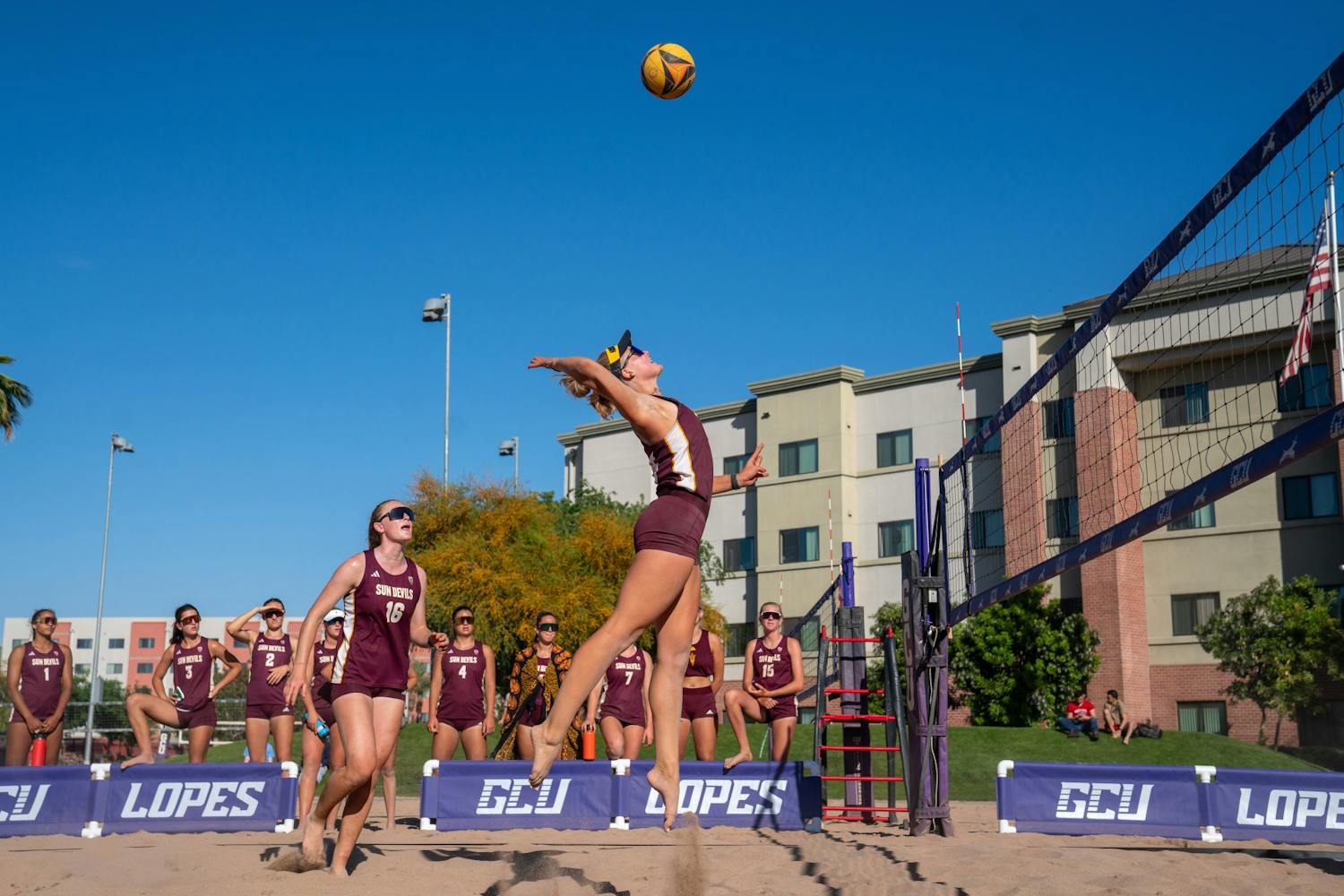 Co-chair Lauren Zack, senior psychology and English double majors, co-founded the Gender Inclusive Housing Action Committee at ASU with Christian Sandoval (not pictured). Zack poses with political science freshman Brandon Marks, a supportive member of the GIHAC, in front of Manzanita Hall on ASU's Tempe campus. (Photo by Rachel Nemeh)
Co-chair Lauren Zack, senior psychology and English double majors, co-founded the Gender Inclusive Housing Action Committee at ASU with Christian Sandoval (not pictured). Zack poses with political science freshman Brandon Marks, a supportive member of the GIHAC, in front of Manzanita Hall on ASU's Tempe campus. (Photo by Rachel Nemeh)ASU’s student-run Gender Inclusive Housing Action Committee has achieved a gender-inclusive housing option for the fall 2014 application and beyond. The organization drafted and submitted a proposal for the option, presenting it to University Housing in December.
GIHAC, founded in early fall by seniors Lauren Zack and Christian Sandoval, was initiated to address some of the complexities students had encountered with the gender-inclusive housing inquiry process. Although gender-inclusive housing has been available since 2011, students were expected to contact University Housing via email, wait for a follow-up and possibly participate in an interview process if they expressed an interest.
Zack said she and Sandoval had seen the issue of gender inclusivity progress over their four years at ASU and felt that not enough had been done to help students utilize the opportunities available to them.
“I had these ideas of how it should be more accessible, and it was very conceptual and theoretical, but then when we actually started this the number of people who came forward and said, ‘This is an option? I had XYZ problems in my residence hall, because I didn’t know that this existed’ was amazing,” she said.
Sandoval said he did not believe University Housing meant to overcomplicate the process, but that it should have taken into account some of the obstacles posed toward students.
“It should be as non-invasive as possible,” he said. “You shouldn’t have to write an email explaining and defending yourself and justifying why you should be able to live in a safe space.”
He said the new application will feature a third option, allowing students to opt out of a strictly male- or female-coded room. Unlike other universities, ASU Housing operates under a residential college model which will allow those who opt into gender-inclusive housing to live with students who share their major while rooming in a gender-inclusive space.
GIHAC member Brandon Marks said he felt the issue of gender-inclusive housing was important because some might not stick to gender binaries.
"We felt (the process) was very intrusive ... for someone who might be transgender or nongender, someone who falls within the complexity and breadth of the gender spectrum," he said.
The organization was careful to regard the inclusivity of language in the new application, Marks said. This was discussed with members and those involved through a Google doc as well as in one-on-one sessions.
“Language is a real thing, so when someone sees that on the website, sees it is inclusive and as positive as possible they might consider ASU an option for themselves to live out their residential years,” he said. “Someone might have forgone us if we had gone with less inclusive language, because that’s the first thing you see when you start to apply to ASU. That application page … language has real consequences.”
Zack said that by fall 2015, the application's language will be stable and sustainable. The organization will meet with University Housing again in February to negotiate this language.
In the interim period, Zack, Sandoval and Marks plan to create a new organization dedicated to making ASU more gender inclusive. Zack said their launch will take place after finding an adviser and researching what other universities have done to accomplish similar goals.
“The new organization we’re starting this semester is kind of facilitated by the work we’ve done with gender-inclusive housing, but it’s not tied to housing,” she said. “It’s going to be a fresh student organization basically advocating on behalf of making ASU a more gender-inclusive space in a lot of different ways.”
Reach the reporter at cncalde@asu.edu or follow her on Twitter @katie_calderon




